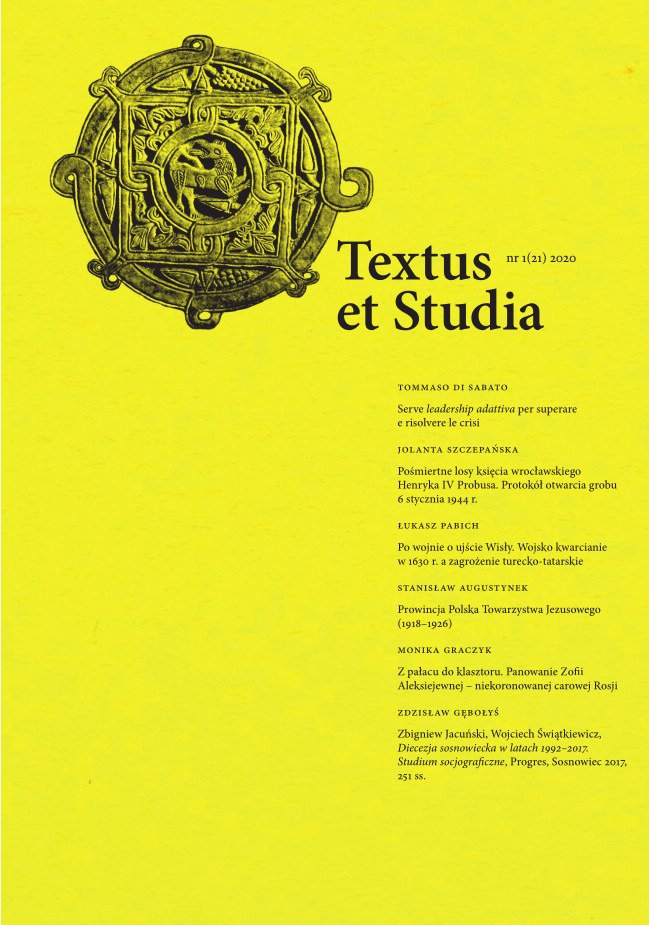Adaptive leadership is needed to overcome and resolve crises
DOI:
https://doi.org/10.15633/tes.06101Keywords:
leader, leadership, changeAbstract
Abstract Organizations can deal with emergencies, even those related to the covid-19 pandemic if led by creative leaders, which is a prerequisite for the professional affirmation and development of everyone in the organization. The author emphasizes the importance of the work of Heifetz, Linsky and Grashow who, fully referring to the principles of Darwin’s evolutionary biology, recalls the importance of “adaptive leadership”, characterized by the ability to change ways of thinking and acting.References
Bass M.B., Psicologia e guida degli omini nelle organizzazioni, Milano 1975.
Bochicchio F., Di Sabato T., Apprendimento e cambiamento nelle organizzazioni, Tricase 2018.
De Giosa V., Di Sabato T., Clima organizzativo e leadership: dal successo del singolo alla forza del gruppo, «Leadership & Management» 2019, del 14 novembre.
De Giosa V., Di Sabato T., La creatività come presupposto per governare l’organizzazione flessibile, «Leadership & Management» 2019, del 2 luglio.
Di Sabato T., La resistenza al cambiamento e il ruolo del leader, «Leadership & Management» 2019, del 2 aprile.
Heifetz R., Grashow A., Linsky M., Leadership in a (Permanent) Crisis, «Harvard Business Review» 2009, July–August.
Heifetz R., Linsky M., Grashow A., La pratica della leadership adattiva, trad. S. Zordan, Milano 2018.
Kotter J.P., Il fattore leadership, Milano 1989.
Downloads
Published
Issue
Section
License
Copyright (c) 2021 Tommaso Di Sabato

This work is licensed under a Creative Commons Attribution-NonCommercial-NoDerivatives 3.0 Unported License.
Authors who publish with this journal agree to the following terms:
- Authors retain the copyright and full publishing rights without restrictions, and grant the journal right of first publication with the work simultaneously licensed under a Creative Commons Attribution 4.0 International License that allows others to share the work with an acknowledgement of the work's authorship and initial publication in this journal.
- Authors are able to enter into separate, additional contractual arrangements for the non-exclusive distribution of the journal's published version of the work (e.g., post it to an institutional repository or publish it in a book), with an acknowledgement of its initial publication in this journal.
- Authors are permitted and encouraged to post their work online (e.g., in institutional repositories or on their website) prior to and during the submission process, as it can lead to productive exchanges, as well as earlier and greater citation of published work (See The Effect of Open Access).

